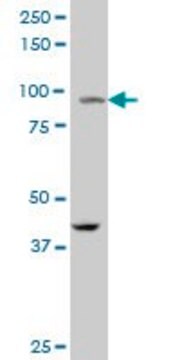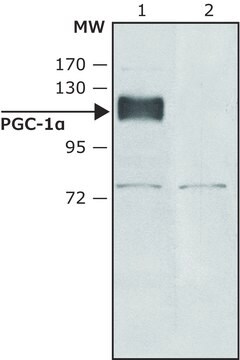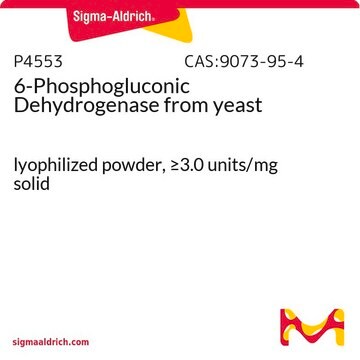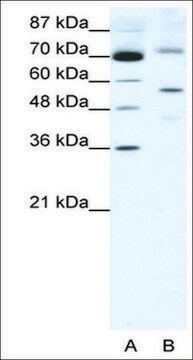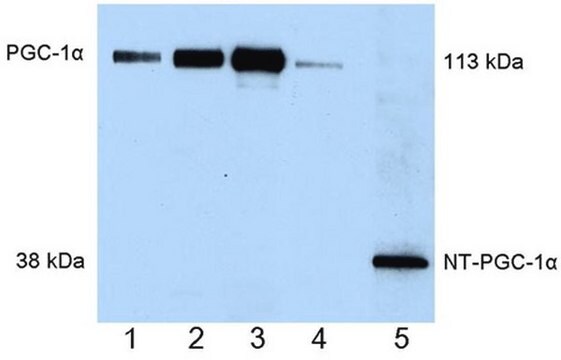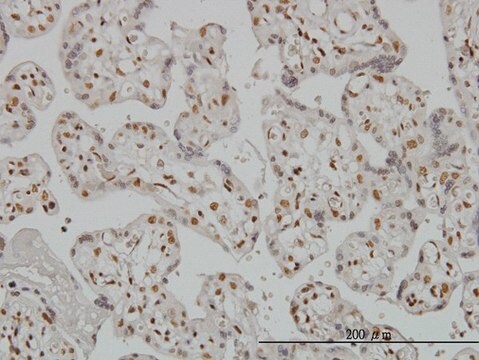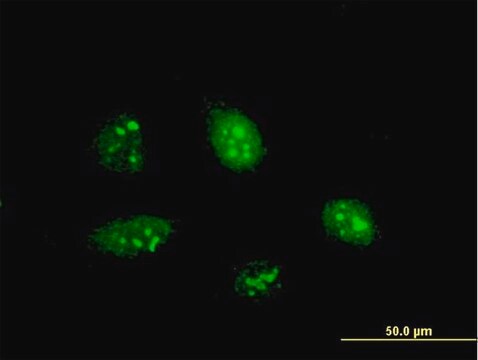WH0010891M3
Anti-PGC-1α antibody produced in mouse
clone 1F3, purified immunoglobulin, buffered aqueous solution
Sinônimo(s):
Anti-LEM6, Anti-PGC1, Anti-PGC1(α), Anti-PGC1A, Anti-PGC1v, Anti-PPARGC1, Anti-Peroxisome proliferative activated receptor, γ, coactivator 1, α
About This Item
Produtos recomendados
fonte biológica
mouse
Nível de qualidade
conjugado
unconjugated
forma do anticorpo
purified immunoglobulin
tipo de produto de anticorpo
primary antibodies
clone
1F3, monoclonal
Formulário
buffered aqueous solution
reatividade de espécies
human
técnica(s)
indirect ELISA: suitable
Isotipo
IgG2aκ
nº de adesão GenBank
nº de adesão UniProt
Condições de expedição
dry ice
temperatura de armazenamento
−20°C
modificação pós-traducional do alvo
unmodified
Informações sobre genes
human ... PPARGC1A(10891)
Categorias relacionadas
Descrição geral
Imunogênio
Sequence
TRTELRDRFEVFGEIEECTVNLRDDGDSYGFITYRYTCDAFAALENGYTLRRSNETDFELYFCGRKQFFKSNYADLDSNSDDFDPASTKSKYDSLDFDSLLKEAQRSLRR
Ações bioquímicas/fisiológicas
forma física
Informações legais
Exoneração de responsabilidade
Não está encontrando o produto certo?
Experimente o nosso Ferramenta de seleção de produtos.
Código de classe de armazenamento
10 - Combustible liquids
Ponto de fulgor (°F)
Not applicable
Ponto de fulgor (°C)
Not applicable
Equipamento de proteção individual
Eyeshields, Gloves, multi-purpose combination respirator cartridge (US)
Escolha uma das versões mais recentes:
Certificados de análise (COA)
Não está vendo a versão correta?
Se precisar de uma versão específica, você pode procurar um certificado específico pelo número do lote ou da remessa.
Já possui este produto?
Encontre a documentação dos produtos que você adquiriu recentemente na biblioteca de documentos.
Os clientes também visualizaram
Global Trade Item Number
| SKU | GTIN |
|---|---|
| WH0010891M3-100UG | 4061831637793 |
Nossa equipe de cientistas tem experiência em todas as áreas de pesquisa, incluindo Life Sciences, ciência de materiais, síntese química, cromatografia, química analítica e muitas outras.
Entre em contato com a assistência técnica

